Built in 1880 as the Piccatinny Powder Depot, this site was the major supplier of smokeless powder to the military for many years.
2006
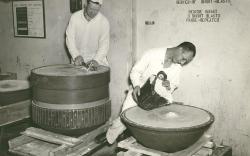

A number of major engineering feats required to complete the tasks for the mission at hand, which were later used in further projects
The Hughes Glomar Explorer was designed to complete the mission of lifting a 2,000-ton Soviet submarine 17,000 feet from the bottom of the Pacific Ocean.

The first transmission of intelligible speech over electrical wires took place on 10 March 1876. Inventor Alexander Graham Bell called out to his assistant Thomas Watson, “Mr. Watson, come here! I want to see you.” This transmission took place in their attic laboratory located in a near here at 5 Exeter Place. A pioneer in the field of telecommunications, Alexander Graham Bell was born in 1847 in Edinburgh, Scotland. He moved to Ontario, and then to the United States, settling in Boston, before beginning his career as an inventor.

Beech Factory Landing FieldWichitaState: KSZip: 67206Country: USAWebsite: https://www.aiaa.org/HistoricAerospaceSites/Creator: Cessna, Clyde , Beech, Walter
The Travel Air Airplane Manufacturing Company served as the incubator in which Wichita Kansas’ present-day status as the world’s “Air Capital” first developed. The firm was among the first viable airplane manufacturers to be established in Wichita (1925). It also was responsible for four aviation legends firmly establishing themselves in Wichita and forming the nexus between Wichita and world aviation: Walter Beech, Olive Ann Mellor (later Olive Ann Beech), Clyde Cessna, and Lloyd Stearman.

TiponCountry: PeruWebsite: http://www.asce.org/Project/Tipon/Creator: Incan Civilization and predecessors
Tipon is a self-contained, walled settlement that served as an estate for Inca nobility. Located 13 miles down the Huatanay River Valley by the Inca capital of Cusco, the 500-acre archeological site provides knowledge and better understanding of the pre-historic Inca and their irrigation and building skills. The site represents great mastery of irrigation and hydraulic technology. The civil engineers of Tipon designed buildings, 13 integrated central terraces, waterworks, hundreds of other terraces and massive structures to be visually and functionally harmonious with their surroundings.

The Portland Observatory was built in 1807 by Captain Lemuel Moody to serve as a communication station for Portland Harbor. Portland Observatory was one of the earliest marine signal stations in the United States, and it is the last known to survive. The Observatory's location on Munjoy Hill gave it a clear view of vessels approaching Portland Harbor. The Observatory contributed to the prosperity of Portland Harbor as a vital center of maritime commerce during the "Golden Age of Sail."
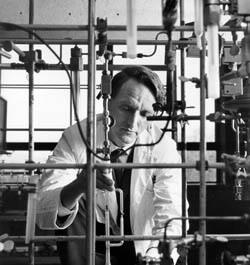
In 1962 Neil Bartlett demonstrated the first reaction of a noble gas. The noble gas family of elements - helium, neon, argon, krypton, xenon, and radon - had previously been regarded as inert. By combining xenon with a platinum fluoride, Bartlett created the first noble gas compound. This reaction began the field of noble gas chemistry, which became fundamental to the scientific understanding of the chemical bond. Noble gas compounds have helped create anti-tumor agents and have been used in lasers.

Machu Picchu represents the culmination of Inca public works building standards and technology, as well as 4,000 years of Andean community development. This landmark is the most well known archaeological site in South America and serves as a destination site for world travelers. It was a royal estate for Emperor Pachacuti.
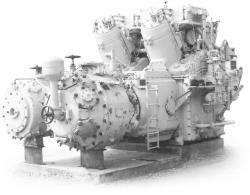
This compressor was a product of the combined technology and design heritage of both the C. & G. Cooper Company of Mount Vernon and the Bessemer Gas Engine Company of Pennsylvania, which had merged in 1929. Ralph L. Boyer, the chief architect of the GMV, worked for Cooper-Bessemer from 1926 through 1965.

Innovations

Bread is considered a basic foodstuff; eaten down through the ages, it continues to be a staple of the modern diet. The development of baking powder made baking easier, quicker and more reliable for bakers in the mid-19th century. Eben Horsford’s unique formula was an important innovation and…
Read MoreThe Wildcat's innovative "Sto-Wing" mechanism developed on the XF4F-4 prototype by Leroy (Roy) Grumman (1895-1982), a founder of Grumman Aircraft Engineering Corporation, was crucial to the U. S. Navy's success during World War II.
The idea of a folding wing was not new: as early as 1920…
Read More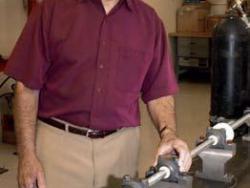
The Southwest Research Institute Split-Hopkinson Pressure Bar apparatus is a mechanical test instrument used to characterize the dynamic response of materials at high strain rates (typical of impacts and explosions).
The apparatus, based on devices invented by Bertram Hopkinson and…
Read More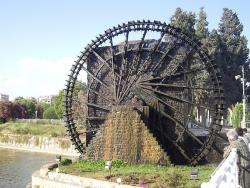
The Noria al-Muhammadiyya is the most famous of many norias in Hama. This giant operating noria is unique in both size and age. Built in 763 AH, or 1361 CE, and still in use today, it is a stand-alone water pump. The river that provides the water it raises also serves as its sole source of…
Read More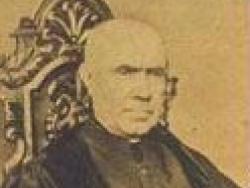
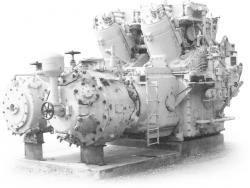
This compressor was a product of the combined technology and design heritage of both the C. & G. Cooper Company of Mount Vernon and the Bessemer Gas Engine Company of Pennsylvania, which had merged in 1929. Ralph L. Boyer, the chief architect of the GMV, worked for Cooper-Bessemer from 1926…
Read More
Machu Picchu represents the culmination of Inca public works building standards and technology, as well as 4,000 years of Andean community development. This landmark is the most well known archaeological site in South America and serves as a destination site for world travelers. It was a royal…
Read More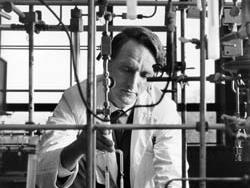
In 1962 Neil Bartlett demonstrated the first reaction of a noble gas. The noble gas family of elements - helium, neon, argon, krypton, xenon, and radon - had previously been regarded as inert. By combining xenon with a platinum fluoride, Bartlett created the first noble gas compound. This…
Read More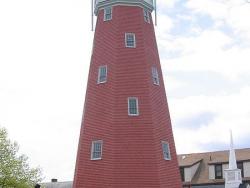
The Portland Observatory was built in 1807 by Captain Lemuel Moody to serve as a communication station for Portland Harbor. Portland Observatory was one of the earliest marine signal stations in the United States, and it is the last known to survive. The Observatory's location on Munjoy Hill…
Read More
Tipon is a self-contained, walled settlement that served as an estate for Inca nobility. Located 13 miles down the Huatanay River Valley by the Inca capital of Cusco, the 500-acre archeological site provides knowledge and better understanding of the pre-historic Inca and their irrigation and…
Read More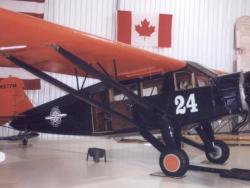
The Travel Air Airplane Manufacturing Company served as the incubator in which Wichita Kansas’ present-day status as the world’s “Air Capital” first developed. The firm was among the first viable airplane manufacturers to be established in Wichita (1925). It also was responsible for four…
Read More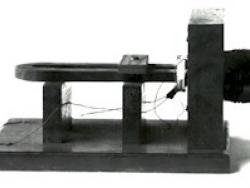
The first transmission of intelligible speech over electrical wires took place on 10 March 1876. Inventor Alexander Graham Bell called out to his assistant Thomas Watson, “Mr. Watson, come here! I want to see you.” This transmission took place in their attic laboratory located in a near here at…
Read More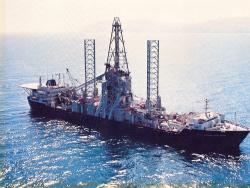
A number of major engineering feats required to complete the tasks for the mission at hand, which were later used in further projects
… Read More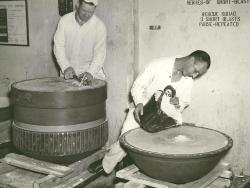
Built in 1880 as the Piccatinny Powder Depot, this site was the major supplier of smokeless powder to the military for many years. Since World War II, Picatinny Arsenal has been at the forefront of research, design, and development of a wide variety of advanced munitions for ground, airborne and…
Read More

